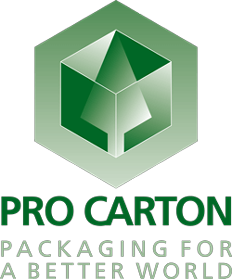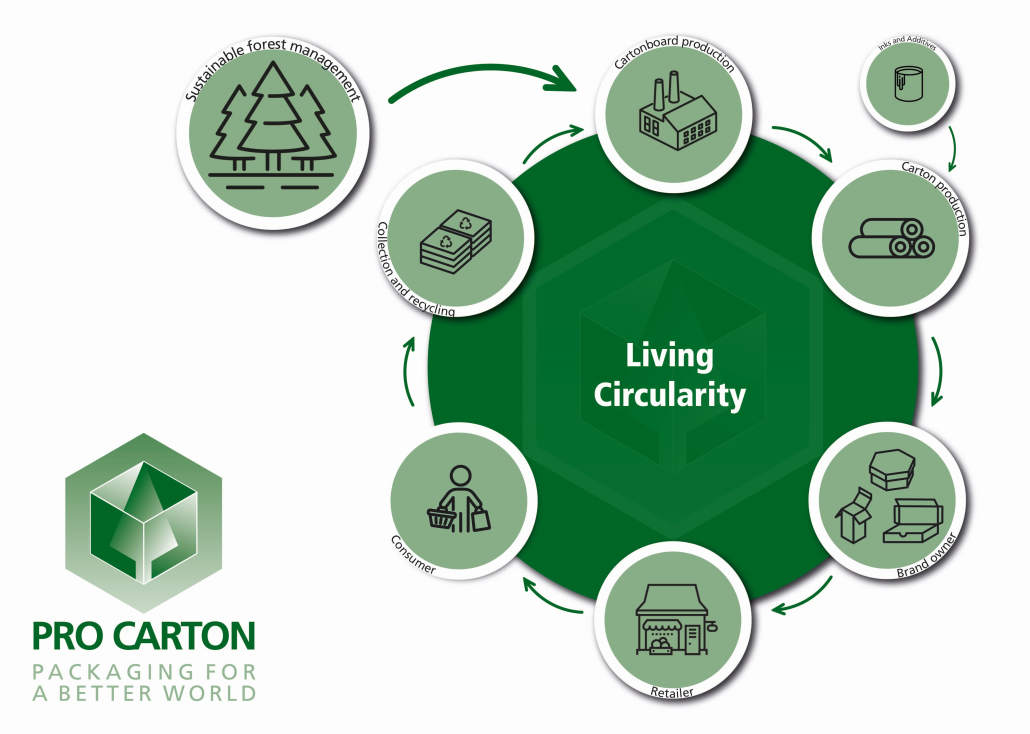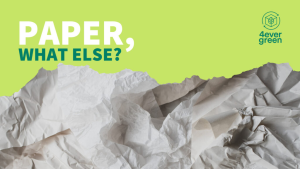Learn more about the stages of the Cartonboard Life Cycle
Cartons can be used to package a wide range of products – from foodstuffs such as cereals, frozen and chilled food confectionery, bakery goods, tea, coffee and other dry foods – to pharmaceuticals, cosmetics and many more products. Cartons are increasingly becoming the preferred packaging material for high-quality products.
The cartonboard and carton industry is proud of the unique sustainability properties of carton based products. Cartons are made from a renewable resource. Their biggest strength is that they are easily recyclable. The fibres that make up cartonboard can be recycled more than 25 times! Furthermore, at the end of the life cycle, cartons are compostable!
Pro Carton has measured the production processes of the European cartonboard and folding carton industry over a number of years and has seen a continuous improvement in the industry’s carbon footprint. We measure CO2 emissions for cartonboard and folding carton production – the latest detailed information and statistics can be found here.
We look at the entire value chain for cartonboard and cartons – the lifecycle of the folding carton.
Cartonboard leads circularity in packaging!
From the forest to cartonboard, to the folding carton, to the retailer, to the consumer and back to recycling in the carton value chain. The cartonboard industry lives a circular economy.





